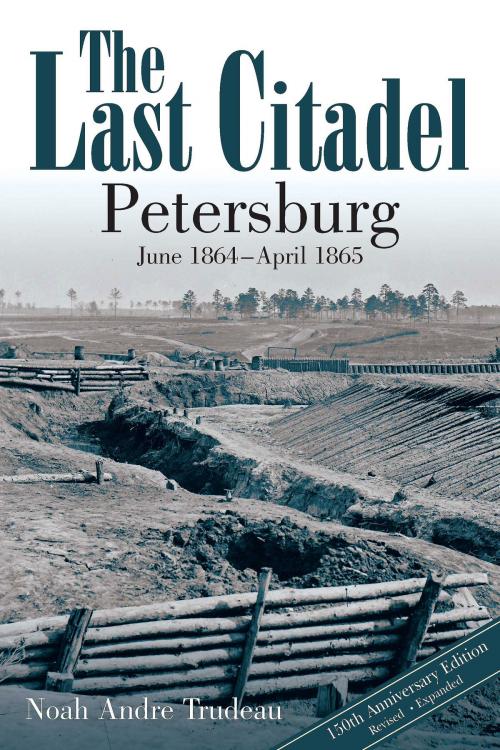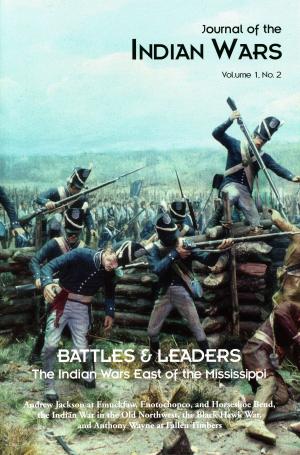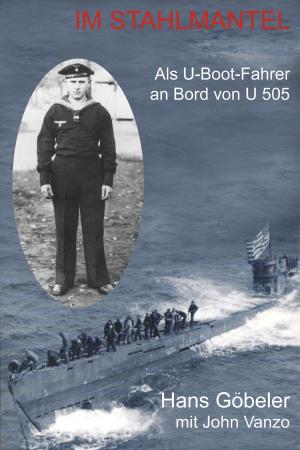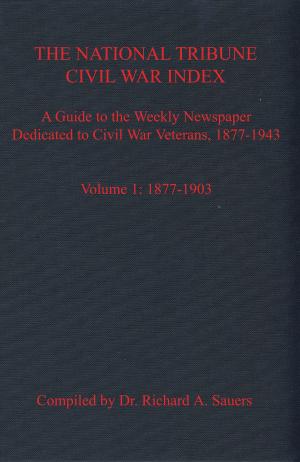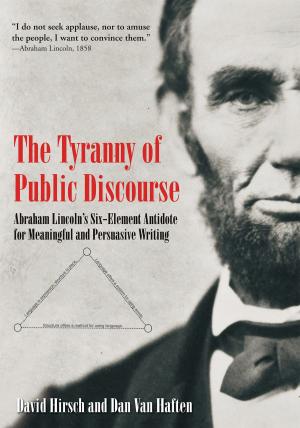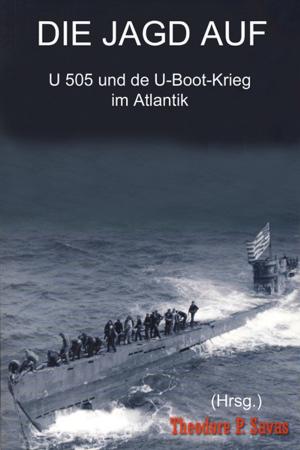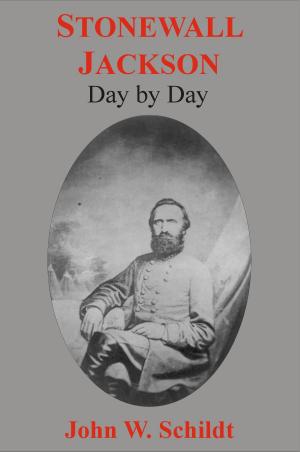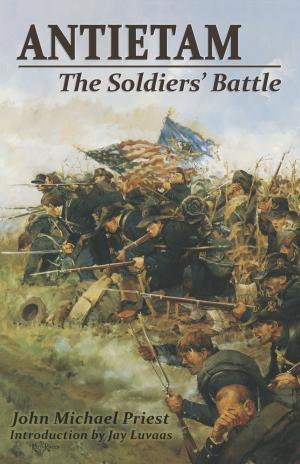The Last Citadel
Petersburg, June 1864 - April 1865
Nonfiction, History, Americas, United States, Civil War Period (1850-1877)| Author: | Noah Andre Trudeau | ISBN: | 9781940669564 |
| Publisher: | Savas Publishing | Publication: | December 19, 2014 |
| Imprint: | Savas Publishing | Language: | English |
| Author: | Noah Andre Trudeau |
| ISBN: | 9781940669564 |
| Publisher: | Savas Publishing |
| Publication: | December 19, 2014 |
| Imprint: | Savas Publishing |
| Language: | English |
This revised Sesquicentennial edition of Noah Andre Trudeau’s The Last Citadel, which includes updated text, redrawn maps, and new material, is a groundbreaking study of the most extensive military operation of the Civil War—the investment of Petersburg, Virginia.
The Petersburg campaign began on June 9, 1864, and ended on April 3, 1865, when Federal troops at last entered the city. It was the longest and most costly siege ever to take place on North American soil, yet it has been overshadowed by other actions that occurred at the same time period, most notably Sherman’s famous “March to the Sea,” and Sheridan’s celebrated Shenandoah Valley campaign. The ten-month Petersburg affair witnessed many more combat actions than the other two combined, and involved an average of 170,000 soldiers, not to mention thousands of civilians who were also caught up in the maelstrom. By its bloody end, the Petersburg campaign would add more than 70,000 casualties to the war’s total.
Petersburg was the key to the war in the East. It lay astride five major railroad lines that in turn supplied the Confederate capital, Richmond. Were Petersburg to fall, these vital arteries would be severed, and Richmond doomed. With the same dogged determination that had seen him through the terrible Overland Campaign, Lieutenant General Ulysses S. Grant fixed his sights on the capture of Petersburg. Grant’s opponent, General Robert E. Lee, was equally determined that the “Cockade City” would not fall.
Trudeau crafts his dramatic and moving story largely through the words of the men and women who were there, including officers, common soldiers, and the residents of Petersburg. What emerges is an epic account rich in human incident and adventure. Based on exhaustive research into official records and unpublished memoirs, letters, and diaries, as well as published recollections and regimental histories, The Last Citadel also includes 23 maps and a choice selection of drawings by on-the-spot combat artists.
With The Last Citadel, the Petersburg campaign at last emerges from the shadows to take its rightful place among the unforgettable sagas of the Civil War.
This revised Sesquicentennial edition of Noah Andre Trudeau’s The Last Citadel, which includes updated text, redrawn maps, and new material, is a groundbreaking study of the most extensive military operation of the Civil War—the investment of Petersburg, Virginia.
The Petersburg campaign began on June 9, 1864, and ended on April 3, 1865, when Federal troops at last entered the city. It was the longest and most costly siege ever to take place on North American soil, yet it has been overshadowed by other actions that occurred at the same time period, most notably Sherman’s famous “March to the Sea,” and Sheridan’s celebrated Shenandoah Valley campaign. The ten-month Petersburg affair witnessed many more combat actions than the other two combined, and involved an average of 170,000 soldiers, not to mention thousands of civilians who were also caught up in the maelstrom. By its bloody end, the Petersburg campaign would add more than 70,000 casualties to the war’s total.
Petersburg was the key to the war in the East. It lay astride five major railroad lines that in turn supplied the Confederate capital, Richmond. Were Petersburg to fall, these vital arteries would be severed, and Richmond doomed. With the same dogged determination that had seen him through the terrible Overland Campaign, Lieutenant General Ulysses S. Grant fixed his sights on the capture of Petersburg. Grant’s opponent, General Robert E. Lee, was equally determined that the “Cockade City” would not fall.
Trudeau crafts his dramatic and moving story largely through the words of the men and women who were there, including officers, common soldiers, and the residents of Petersburg. What emerges is an epic account rich in human incident and adventure. Based on exhaustive research into official records and unpublished memoirs, letters, and diaries, as well as published recollections and regimental histories, The Last Citadel also includes 23 maps and a choice selection of drawings by on-the-spot combat artists.
With The Last Citadel, the Petersburg campaign at last emerges from the shadows to take its rightful place among the unforgettable sagas of the Civil War.
